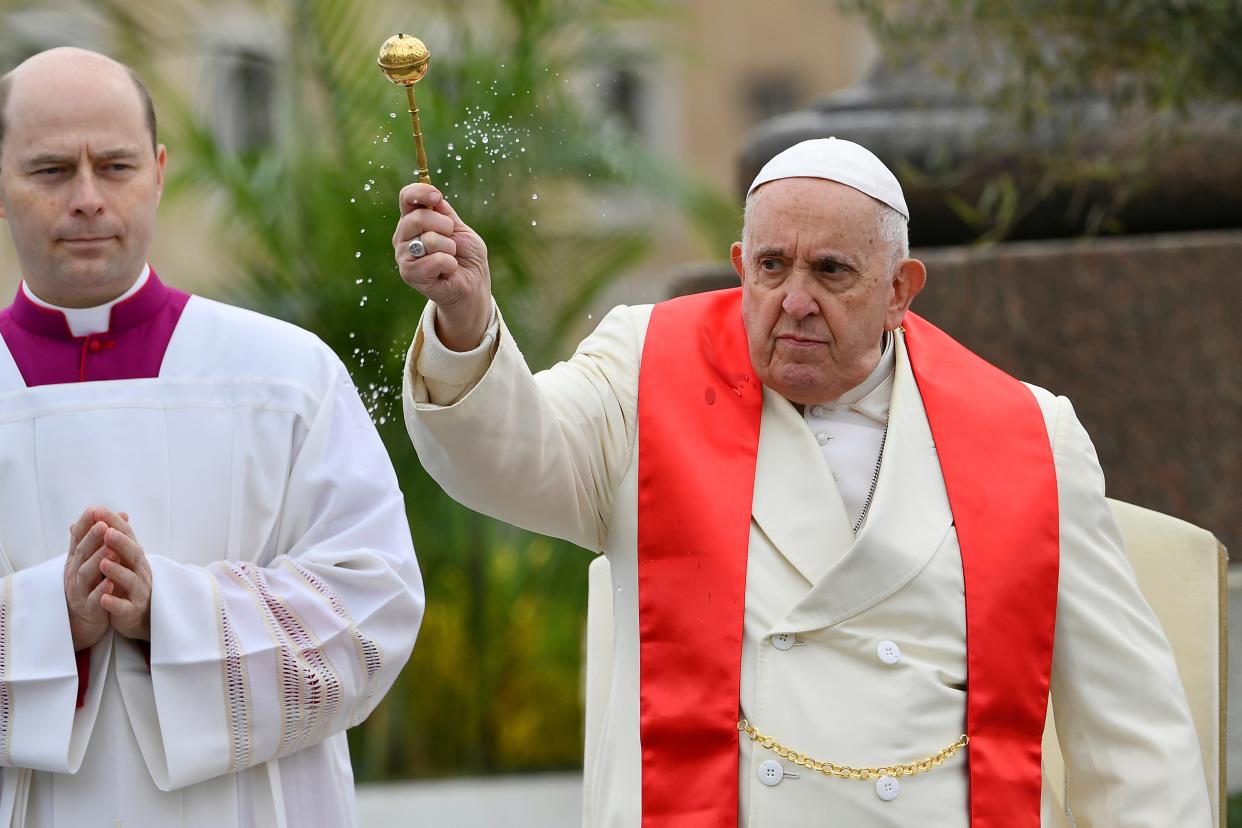What’s at the crux of the Doctrine of Discovery?

What’s at the crux of the Doctrine of Discovery?
For hundreds of years Indigenous peoples have suffered the effects of the so-called Doctrine of Discovery, a principle of international law and based on several 15th Century papal letters which enabled Europe’s Christian nations to claim sovereignty over “discovered” lands uninhabited by Christians.
These letters provided a kind of “ecclesiastical cover” for the actions of European governments and their commercial trading partners in their greed for Earth’s resources.
Now it has happened.
On March 30 the Vatican repudiated “those concepts that fail to recognize the inherent human rights of indigenous peoples, including what has become known as the legal and political ‘doctrine of discovery.’” The statement is a long-awaited, much needed response to a sordid, still painful, still harmful history of the European conquest of the “New World.”
This “doctrine” is not, nor ever has been, an actual doctrine of the Catholic Church, but acknowledging that doesn’t absolve the Church’s complicity with it. As long as conquistadors converted the heathen of the “New World” and baptized them, whatever else they might do, the Church was willing to look the other way, allowing conquering powers to justify their treatment of indigenous people and seize their lands with impunity.
In 1823 the Doctrine of Discovery became enshrined in our own nation’s law when the U.S. Supreme Court employed the principle in an Illinois’ land dispute. In Johnson v. McIntosh, the Marshall Court ruled that Johnson couldn’t claim ownership of land along the Wabash River he said he purchased from the Piankeshaw Nation because the tribe couldn’t sell what it did not “own.” McIntosh, on the other hand, did have the right to the land because it was sold to him by the U.S. Government — which, of course, stole it from the Piankeshaw Nation. The case continues to be cited as precedent in land disputes around the world, in the U.S. in 2005 and in Canada as recently in 2011.
The statement of repudiation quotes something Pope Francis said last summer during a visit with Indigenous people in Canada. “Never again can the Christian community allow itself to be infected by the idea that one culture is superior to others, or that it is legitimate to employ ways of coercing others.”
This seems to me the crux of the matter. It was pretty clear, even in the 15th century, that what happened in the period of colonization in the Americas was NOT what Jesus intended. There were those, even then, who understood that clearly and worked to dismantle the systems that perpetrated the abuse.
Now, 500 years on, how do we disentangle the “one, holy, catholic, apostolic” faith from the white supremacist greed exported together by Europe’s Christian nations? This is the leading edge of one of the challenges facing the church today.
It is not possible, ever, to undo the harm caused in places so thoroughly colonized by Christian nations. The question then becomes, how do we contribute to the healing of that harm? The answer will be made clear as the impact of this long overdue statement of repudiation makes its impact in Church and State.
The day the Vatican released its statement, the United States Bishops Conference also released one. Unlike the Vatican, the U.S. bishops did not ask pardon. At first greatly bothered by that, I gradually realized the wisdom there. A request for pardon is grossly premature when in this country we have not yet fully reckoned with the very real and ongoing consequences of the Doctrine on our nation, not the least of which is the scandal of the Indian Boarding Schools. “…with humility, we wish to offer our continuing solidarity and support, as well as a further willingness to listen and learn,” the U.S. Bishops’ statement said, acknowledging there is much harm to be undone, and intentions to be made clear, before any pardon can be sought. Now, may we be about the work.
Sister Beth Murphy, OP, is the communication director for the Dominican Sisters of Springfield, Ill.
This article originally appeared on State Journal-Register: What’s at the crux of the Doctrine of Discovery?

